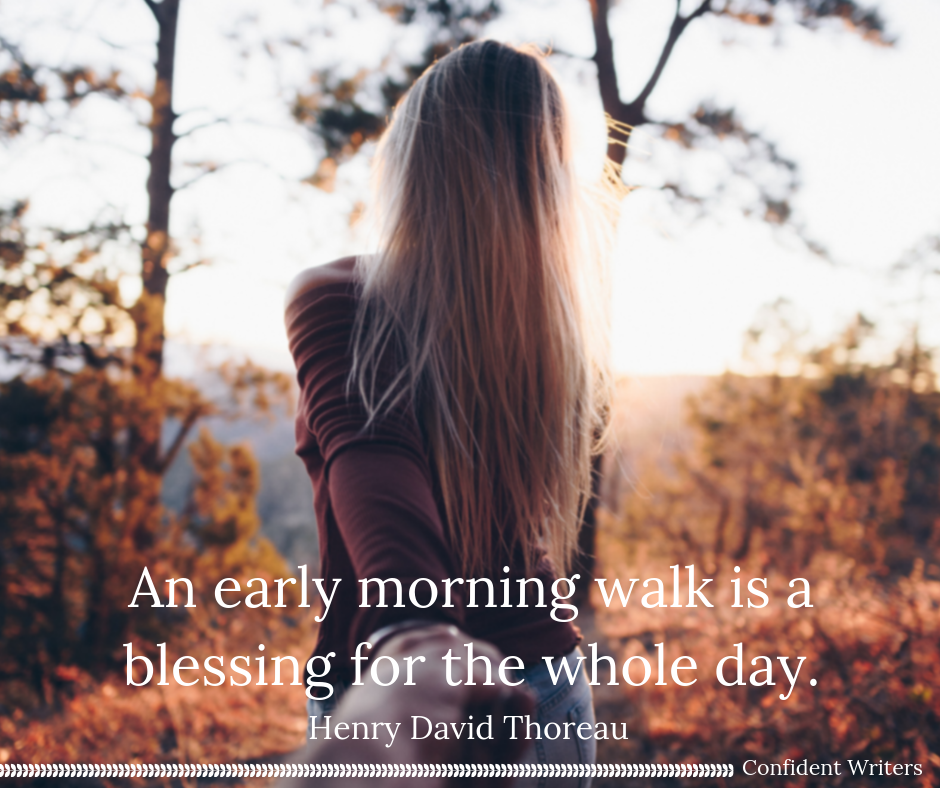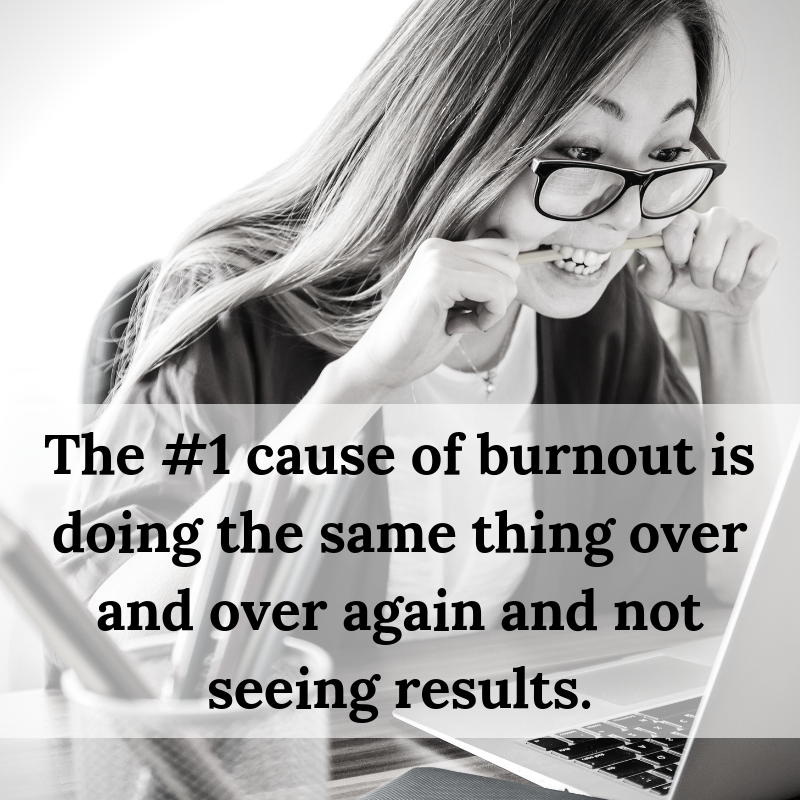
Writer burnout is a real thing and it’s absolutely devastating. How awful to have the time to do what you love to do, but not be able to bring yourself to the laptop to do it. Sometimes this is just a simple sign of procrastination or fatigue, but sometimes it’s a symptom of something bigger.
What does your work week look like?
There was a point in my life where I was working part time four days a week, 5 hours a morning. I had freelance clients that could account for 5 to 20 hours a week without any predictability. At the time I had three teenagers and my husband who all (legitimately) had demands on my time. The only time I could find to write for myself was late at night. I would begin about 9 or 10pm and write until 2-3am. I would go to bed for a few short hours, get the kids to school and me to work, and then come home after work and sleep until the kids got home and start all over.
That’s a classic recipe for burnout. And I couldn’t write for three months because of that insane schedule that put me much father behind than if I had just paced myself to begin with.
What Does Burnout Look Like?
Lack Of Motivation
That passion, that need to empty the creative reservoir, is gone. You can go for days without even opening your laptop or thinking about your story. You find a million other things to do instead like clean, take up a new/old hobby, whatever. Your first thought when you had a few spare minutes was to write and now you’re just not interested.
Lack Of Energy
Writing no longer gives you energy, it exhausts you. More than that, the idea of writing exhausts you. You’re tired all the time until you’re tired of being tired. This is also a sign of depression which can cause writer burnout or be a symptom of it.
Poor Memory
You used to be able to retain a million things in your head, and now you make a list and forget you made the list. Age can play a part in this, but you know what normal is for you. You just pause one day and realize that your memory of late has really sucked. Ask yourself why.
You Ignore Your Health
Maybe you’ve lost your appetite, or the opposite–you’re allowing yourself to indulge in things you wouldn’t otherwise. I’m not talking about a cheat night or a special occassion, but an indulgence that’s become a regular thing of late. This could include drinking more alcohol than you normally would, spending a whole day or weekend or week on the sofa bingewatching Netflix or BritBox. Maybe your exercise routine has completely gone out the window and you don’t even miss it?
Your Creativity Is Gone
When you do write, it feels contrived and forced. You hate what you write. You have to spend twice as long as normal to get the same wordcount. You begin to resent the deadlines you’ve set for yourself. Everything sucks. Why bother. You can’t think of anything to write about or where the story should go next and just thinking about it is exhausting and crushing.
Now, any of these things could be a symptom of poor planning on your part, outside circumstances spilling over into your writing space (like a new baby), depression, or poor self-esteem. But we all know what normal looks like for us and with burnout, it’s worse than whatever our normal is.
How Long Should We Spend Writing Every Day?
The only cure I’ve found helpful is to take a break. That could mean building time into your schedule to socialize or exercise. Force yourself to take regular breaks away from the laptop every two hours. Eat regularly and drink plenty of water. Get lots of rest.
Here’s the truth that many of us don’t like to acknowledge. Being creative is tiring. We may just be sitting in a chair and “thinking” but we’re expending emotional energy and you only have so much to give in a day.
According to Alex Pang, author of Rest, the answer to ‘How many hours a day should a knowledge worker work’ is four hours.
Yeah – that surprised me too. We can give 100% to our creative work for about four hours a day. After that, we’re forcing ourselves into exhaustion and you just can’t maintain that for any length of time without consequence. Burnout, in all honesty, is one of the lesser consequences. I have friends with serious health issues because they can’t step away from their creative work.

You Can Prevent Burnout
Cut Yourself Some Slack – Whatever goal you’ve set for yourself, continue to move towards it but not at the risk of your health or your family. You’ll get there. Maybe not as soon as you’d like, but when you get there you’ll actually have the energy to enjoy it. Pad your deadlines to allow for life to interrupt, for you to have an off day, to go for a hike or to the beach. Being a writer doesn’t mean you only write.
Take Care Of Yourself – It’s important to take care of our health and bodies. I know writers who write through chronic health issues and their strength amazes me, but they admit it’s really hard and exhausting. Writing is so much easier if you’re healthy. Get up and move around. There are health complications of a sedentary life. Many writers have back issues, repetitive strain issues with their hands or wrists or necks. I know others who struggle with blood pressure problems. If writing/working too much is the cause, that’s an easy fix.
Listen To Your Body – There’s a tired you can push through and there’s a tired you need to listen to and learning the difference is hard. I have learned what I can push through by just getting up and moving around, changing where I’m writing, remembering to eat, or working on a different project. But sometimes, after a three or four hour intensive writing session, my body needs rest and it’s important to listen to that. Your brain needs a rest too. If you are hitting a wall and just can’t think of how to solve a problem or where to take your story next, get out from behind the desk and go for a walk. Go catch a movie. Something where your brain can change gears for a bit.
Refill Your Creative Think Tank – Get out of the writing cave and experience some life. How do you write about life if you don’t live it! Go for a walk. Go for a hike with your dog or a friend. Go the beach. Visit that fair. Watch the movie. Don’t forget to continue to enjoy your other hobbies. When I shut down my laptop for the day, I’ll often sit in front of the TV with whatever knitting project I have on the go and just unplug. Be willing to leave the phone behind. Read a book. Watch a play.
Whatever relaxing and enjoying life looks like to you, go do that with people you love.
Learn to recognize the warning signs and take a break before your mind and body force you to. My crazy work schedule sent me into burnout and I couldn’t write for a year. A YEAR!! Now, I’m better at seeing the signs. I don’t ever want to go through that again, and I hope maybe this post can help you avoid that outcome too.
Dive Deep!
Have you had writer burnout or been close to it? What are some warning signs you’ve now learned to pay attention to?
Been told you should learn Deep Point Of View? Had an editor or critique partner tell you to “go deeper” with the emotions in your fiction? Looking for a community of writers seeking to create emotional connections with readers? Check out the Free Resource Hub and then join the Going Deeper With Emotions In Fiction Facebook group.

Comment